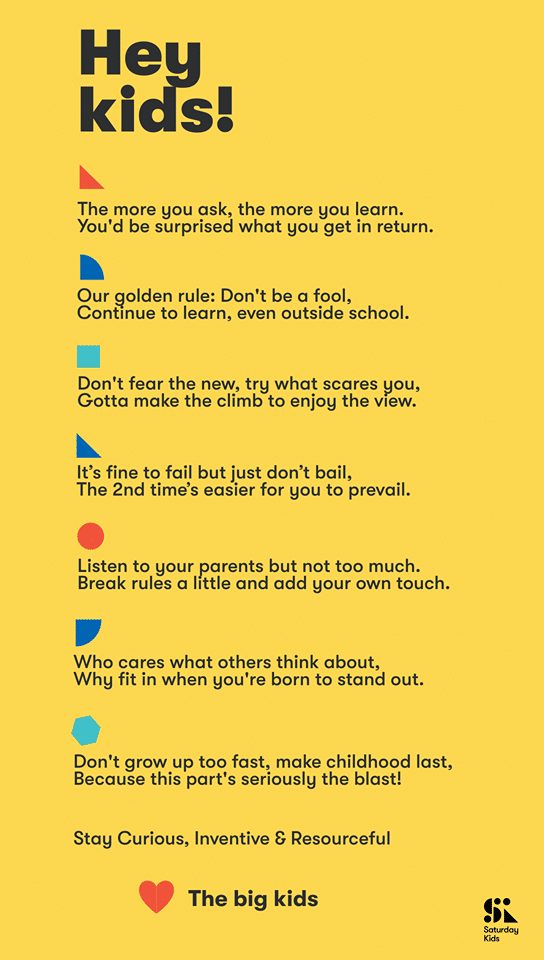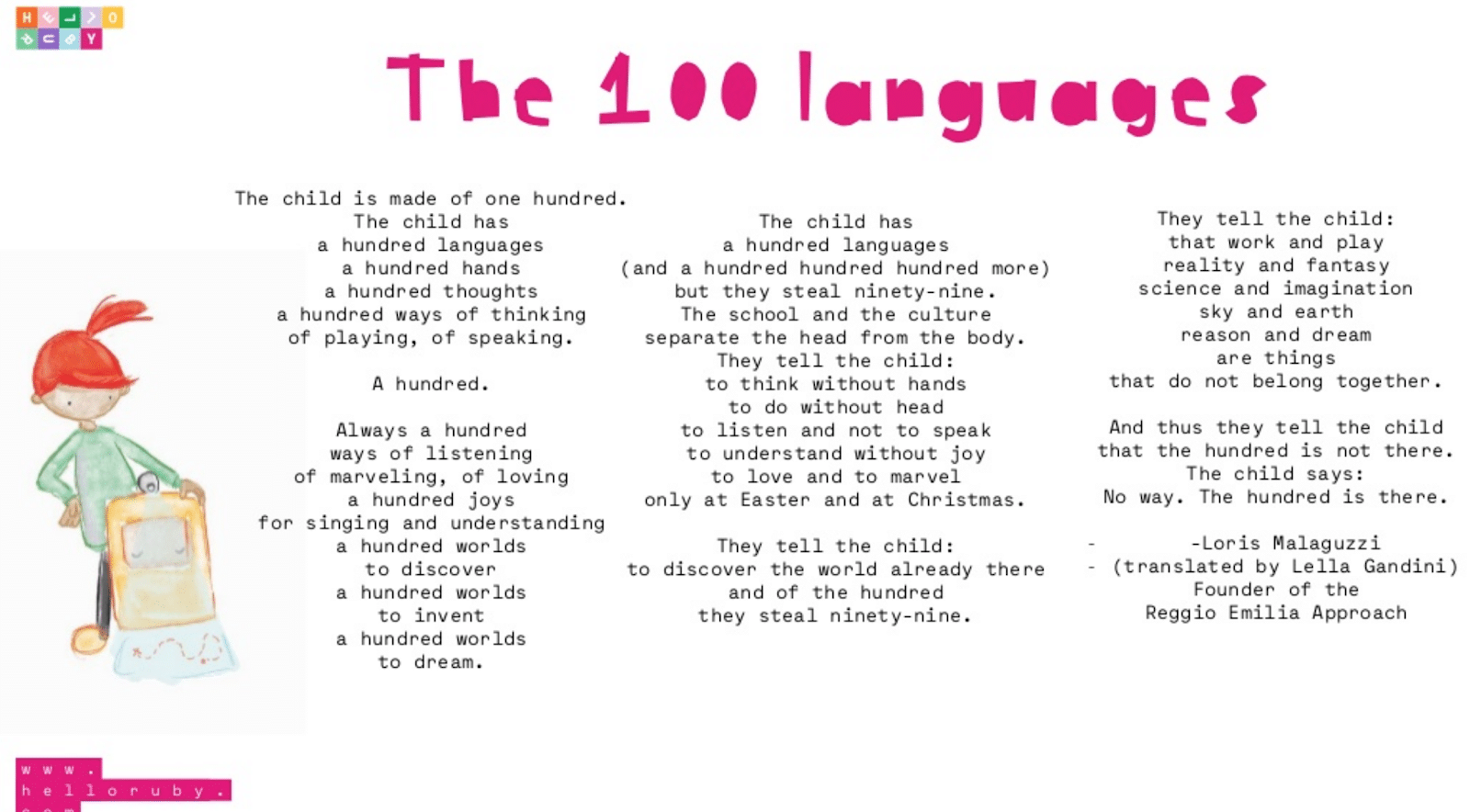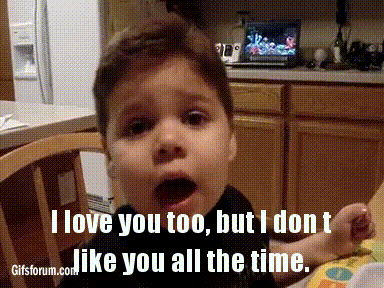The post Children as Forefront for Change – Can Childhood Empower? appeared first on Saturday Kids | Coding, Digital Literacy for Kids & Parents.
]]>Hi everyone, my name is John and I’m the founder of Saturday Kids. Thank you RAISE for organising this session, and for inviting me to be a part of it. I think it’s safe to assume that most of you here care about about children as much as I do and want to enrich and make the best of their childhoods, since you’re here on this Saturday afternoon. I hope you find the perspectives shared to be useful.
People tend to know us (Saturday Kids) as a digital literacy school for kids. That is correct to a certain extent. But what motivates us at Saturday Kids goes beyond that. At its core, we’re using this as a platform to help kids become curious, inventive and resourceful individuals. To that extent, you wouldn’t be far off to call us a curiosity school for kids.

Today I want to share with you all why we should change the way we view play, how kids are inventing the future, and why like-minded organisations should better support each other as we address a common goal.
CHANGING THE WAY WE VIEW PLAY
We got connected recently to a lady named Victoria who started a company called The Bright Life. Her work focuses on educating parents on the Montessori philosophy and we draw a number of parallels between her principles and ours – and I’ve highlighted some of her thoughts below.
For many of us, we are conditioned to think and feel that play and learning are two separate activities. Study first, and then play later. But the Montessori philosophy offered a different perspective, that a child’s work IS to play.
In a Montessori classroom, a child is allowed to work on whatever they choose to, at their own pace, free from distraction. This individualised way of working allows the child to fully explore the material at hand, on their own terms, and at a level they are satisfied with. It enables a beautiful unfolding on their curiosity and need for mastery of the particularly skill. While the work they do may look like play, it is instead, meaningful work to the child.
Play is an excellent way to build a child’s confidence and independence and is one of the core principles at Saturday Kids. Play enables innovation (new things, invention of new games with the same toys), improvisation (working with limited resources/toys, being spontaneous), imagination (coming up with new characters for the story), builds focus (e.g. when they’re engaged in a puzzle) and interaction (with others, negotiating, interpersonal skills). It enables us to empower our children by allowing them to achieve a certain level of mastery of their physical, emotional and mental environments.
Play is not just laughter and having fun (although that is an important part of play). Not just the activity. It’s the attitude of testing, experimenting and trying, which leads us to two other core principles at Saturday Kids. Learning happens by doing. Failure is reframed as iteration.
The sum of this is giving children confidence and independence all through adulthood. If we want our kids to stand up for what’s right, fight for what they they believe in, and help those whose voices cannot be heard, it will take a truly confident person to do so. And a lot of that start from childhood. That’s why it has to start with children. That’s why we have to let them play.
EMPOWERING KIDS TO INVENT THE FUTURE
Loris Malaguizzi, founder of the Reggio Emilia approach, created a poem called “The 100 Languages”. Reggio Emilia is a small Italian village that decided to revolutionise education after the WWII. Instead of writing a vision plan, a strategy, they decided to write a poem – which serves a metaphor for the extraordinary potential of children, and refers to the many ways a child has to express himself/herself (and digital literacy is just 1 of the many).

At Saturday Kids, we want to provide kids a platform for them to creatively express themselves and have witnessed how empowering it is when a child takes charge of his/her own learning, becomes intrinsically motivated to learn – through constant tinkering, experimenting, building, making. Here are a few stories:
Isabel Loh (7), aspiring game designer
Isabel is our youngest ever Teaching Assistant. She attended our Scratch camps last Nov/December and left a lasting impression on all of us. After she completed the first course, she actually went on to build something else based on what she learnt – an animation based on her pet hamster, Cheddar. She made a whole cartoon about him and his adventures.
Caleb (11), who built an app to help his grandpa
Caleb, was a student at our mobile app camp last year. During the course of the camp, he identified a problem that his grandfather was struggling with. With Caleb and his 2 brothers all in different schools, figuring the route of picking them all up was just too much planning for his granddad.
So Caleb built his own Family Uber app to help his Granddad to plot his route on Google Maps without having to individually key in the location and fiddle around on Google Maps every time. Caleb made an app that was genuinely helpful to his grandfather; he identified a problem that his grandfather was facing and built an app to address it. That’s the kind of thinking we want to encourage in kids these days.
Sean (12) from Code in the Community
First let me tell you about Sean. He’s 12. He attended Code in the Community, a Google-sponsored initiative to bring free coding classes to 3,000 young Singaporeans from less well-to-do backgrounds.
So Sean was introduced to coding through CITC. After the program, he became inspired to learn new coding skills on his own and was one of the students offered a seat at our Python camp this June. Because he had learnt so much on his own, he was way more advanced than the rest of the class and ended up spending most of his time helping the other kids instead. Saturday Kids has a formal TA programme where we invite kids with advanced coding skills to assist in the classroom and we pay them for assisting. We are planning on inviting Sean back this December as a Python teaching assistant. Not only do we want to give Sean his first taste of coding, we want to write him his first pay cheque as well.
If we believe that the future belongs to our children, equipping them with not just the skills but the right values and mindsets to approach this will be more valuable than ever. That includes getting kids curious, and asking not just the whys, but also the why nots. We were all born curious (you just have to look at the little ones around you) and ironically we kind of got educated out of it. As Mitch Resnick (founder of Scratch) observed, children in kindergartens these days spend more time with math worksheets and phonics flashcards than building blocks and finger paint – and kindergarten is becoming more like the rest of school, when in fact, the rest of school (even the rest of life) should be more like kindergarten.
That is why at the core of our mission at Saturday Kids – is to get kids curious, inventive and resourceful. For we believe that with curiosity, kids will become intrinsically motivated to learn, and from that intrinsic motivation comes creativity and imagination – skills that these kids will inevitably need to navigate and to change the world (for the better).
CURIOUS KIDS HAVE MORE FUN
While we are a digital literacy school for kids, we will also be the first to acknowledge that humanities and liberal arts are key to a future dominated by tech – for technology is created by, and for people. So is the importance of having kids spend enough time outdoors and having nature as the teacher.
For real change to effect, it will take more than any one organisation or individual – children, parents, teachers, schools and society need to come together. One possible such place we hope this happens, is our facebook group Curious Kids Have More Fun!
And that’s why we really appreciate having a platform like this and to participate in these conversation – to reimagine what learning looks like.
Thank you.
—
The post Children as Forefront for Change – Can Childhood Empower? appeared first on Saturday Kids | Coding, Digital Literacy for Kids & Parents.
]]>The post Real VS Rote Learning: Reshaping The Way Your Kids Learn appeared first on Saturday Kids | Coding, Digital Literacy for Kids & Parents.
]]>Why do parents send their kids to school? You’d think that it’s a silly question, but what is it we want kids to achieve from the hours they spend toiling away in school?
Ideally, the goal of education is to give kids a better understanding of the world around them. For instance, when kids learn about biology, they’re learning about the different systems that make their bodies tick. However, despite learning a tonne of things, the sad reality is that many kids come out of school feeling unequipped to deal with real life.
Take this math question that went completely viral for example.

The only thing that comes to mind is poor Albert and Bernard. All they wanted to know was when her birthday was. It’s questions like these that make kids dread learning in school because they don’t see the relevance of it to the real world.
Not even trying to throw shade at Math or say that it’s useless. Math’s awesome – we built the pyramids with it, use it in algorithms that make Virtual Reality possible, heck we even use it to predict hit songs that find the next Justin Bieber.
And also you can use Math to make a Pi pie, because why not?

The problem is that kids don’t see those kind of infinite and wonderful possibilities when they’re doing questions like this. We need to incorporate real world examples and expand their perception of subjects like Math beyond scenarios like how many notebooks and pens can John buy with $50. Seriously John, you don’t need that many pens or notebooks.
Yearn to learn
There’s a distinct difference between learning things for the sake of it and learning something because we genuinely want to find out more. Cultivating the latter boils down to the way kids learn – rote learning vs real learning.
 This is what the Oxford Dictionary defines as rote learning.
This is what the Oxford Dictionary defines as rote learning.
More often than not, this is what kids are doing in school these days. Is this the way we want kids to learn? We certainly hope not.
On the flip side, real learning occurs when kids tap into their knowledge and apply them to more meaningful cognitive processes such as problem-solving as compared to mere memorising.
With that being said, here are 3 key differences between rote and real learning and how you can reshape the way your kids think and learn about the world around them.
1) Types of cognitive processes triggered
One of the main differences between rote and real learning is the cognitive processes that result from them. Can you figure out what cognitive process is triggered by rote learning? Drumroll please! The answer is – wait for it – the ability to remember and that’s about it. Although memorising for the sake of retaining knowledge may form the foundation of learning something new, it isolates the context away from new knowledge and makes learning meaningless.
On the other hand, real learning unleashes up to 5 cognitive processes where kids understand, apply, analyze, evaluate, and create according to Bloom’s Taxonomy. This combination of cognitive processes then marinate to form the most wonderful part of learning: problem-solving.
So although rote learning may test our ability to retain knowledge, real learning challenges the ways we use it.
2) Long term vs short term goals
When it comes to memorising, we’ve probably all been here. We try our best to mastermind our own acronyms and create stories based on them but before we know it, we’re left with a random bunch of letters that make absolutely no sense.

For the sake of tests and exams, kids memorise the crap out of random facts as if their lives depended on how well they remember the precise definition of cellular respiration. But it won’t take long before what they spent so long drilling into their minds gets tossed away into forgotten archives.
What makes learning engaging to kids is the level of relatability to the topic because it gives the content meaning, making what they’ve learnt actually stick. There’s almost a natural emotional commitment to integrate new and existing knowledge and it’s this very process of combining new knowledge with past experiences that sparks interest, challenges ideas and creates questions.
3) Impact on creativity and curiosity
Best known for his Ted talks on Education, Ken Robinson perfectly puts, “if you’re not prepared to be wrong, you’ll never come up with anything original”.
One of the most awesome traits that most kids have is that they’re adorably (sometimes even brutally) honest. They speak their minds and they’re not afraid to be wrong, until someone tells them otherwise.

When schools place a heavy emphasis on academics which values repetition at the expense of comprehension, it creates a system where kids are rewarded for answering questions with just one right answer, ultimately killing creativity.
You’d think that being creative would involve attempting to be as abstract as Picasso, but it’s actually pretty darn simple. Just like how there are 43 quintillion ways to solve a Rubik’s Cube, being creative is simply finding more than 1 way to solve a problem.
Learning how to preserve that childlike creativity is the key to being resourceful, imaginative and eager to learn. It’s the only way kids’ll come up with ideas that’ll eventually revolutionise the world and that’s something no answer key will be able to provide.
At the end of the day, learning is so much more than the transfer of information from book to brain. It’s about the endless possibilities that stem from knowledge that’ll keep kids constantly curious to learn more.
A world where kids aren’t learning to think is just a world that’s no good. Let’s get kids learning how to learn shall we?
The post Real VS Rote Learning: Reshaping The Way Your Kids Learn appeared first on Saturday Kids | Coding, Digital Literacy for Kids & Parents.
]]>